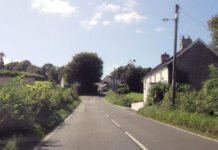
June 2024 – As summer approaches, it’s time to savour a crisp glass of white wine. While renowned wine regions like France, Italy, and California come to mind, Luxembourg stands out as a hidden gem for wine enthusiasts.
Located in the heart of Europe, Luxembourg offers a dynamic wine culture, blending rich traditions with modern flair. With its picturesque vineyards and top-tier wineries, Luxembourg invites visitors to explore its exceptional wine region, partake in festive wine celebrations, and enjoy the distinct flavours of its acclaimed wines.
Here are some of the best activities wine enthusiasts can enjoy while travelling through Luxembourg:
Wine festivals & traditions
Luxembourg’s wine culture comes alive through its numerous wine festivals, which celebrate the rich heritage and delicious grape produce. Key events include:
- Wine and Grape Festival (Fête des Vins et des Raisins), 6th – 9th September 2024
Held annually in Grevenmacher on the second week of September, this festival features parades, music, dancing, and of course, plenty of wine tasting. It is a perfect opportunity to enjoy the local wines and immerse oneself in Luxembourgish traditions. It also crowns the annual wine queen, who will attend several local festivals as part of her “reign.”
- Riesling Open, 13th – 15th September 2024
Riesling Open is a wine festival that takes place every September across the Moselle region. During this three-day event, participating wineries offer tastings and visitors can buy a great variety of wines. The festival begins with the crowning of the Riesling wine queen and a formal dance, after which visitors can sample the local wine products and explore the cellars.
- Hunnefeier (Wine Harvest Festival), 20th October 2024
Hunnefeier is an annual wine festival in Schengen, which is held in late October to celebrate the end of the harvest season. In addition to tasting fine wines, visitors can enjoy many cultural and culinary attractions, explore a local market with more than 100 stands and see the exhibition of historic tractors. Visitors can also taste freshly pressed grape juice and wines.
- Wine, Taste, Enjoy, 8th – 9th June 2025
In early June, the largest wine festival in Luxembourg, takes place along the entire Moselle region. On the Pentecost weekend, wine growers, wineries, and distilleries open their cellars, gardens, and terraces, for wine and brandy tastings, guided walks, culinary specialties as well as art exhibitions, poetry readings and live music. Visit Moselle, the local tourism board, also organises similar events later in the year such as Wine, Culture, Enjoy (August), Wine, Lights, Enjoy (February) and Wine, Cheese, Enjoy (December).
Wine bars in Luxembourg City
Luxembourg City is home to several wine bars where visitors can try organic and chemical free wines, the latest vintage from new and younger estates, or rarer bottles from around the world.
Inspired by its historical surroundings, Vins Fins is a cosy wine bar located in the Grund, a historic part of the capital. Visitors should book a table here for locally and regionally sourced food and drinks, delicious wines and mouthwatering platters. Vinoteca offers tastings of around twenty wines by the glass and 1300 different varieties from all over the world by the bottle while enjoying fantastic views of the MUDAM and Kirchberg area.
Located in Luxembourg’s lively upper town, Flûte alors is an innovative champagne and wine bar where visitors can taste the widest selection of sparkling wines from winegrowers in the Grand Duchy.
For a diverse drink offering, Come à la Cave offers more than 750 wines from all over the world, as well as a selection of 120 craft beers, a variety of champagne, gins and cocktails.
The Moselle Region, home of Luxembourgish wines
With its gentle climate, waterside settlements and sloping vineyards topped with woodlands, the wineries in the Moselle region are an unmissable location for trying a glass of crisp, aromatic Moselle wine.
At Domaine Ruppert, the focus is on consistent quality with low yields and rigorous selection, getting its best wines out of oak barrels. The winegrowing estate, which towers majestically above the Markusberg, is one of the symbols of the Moselle region and is home to prized Riesling, Pinot Gris and Pinot Noir. Interestingly, Domaine Ruppert is located in Schengen, birthplace of the treaty of the same name which led to the creation of Europe’s Schengen Area. Settled along the Moselle Wine Route stands the cellars of the CEP D’OR estate. The real specialty of this estate is in the smoked wines, labelled as “Fumé.” These wines were aged in 600-liter oak barrels, creating “Fumé” Pinot Blanc, “Fumé” Pinot Gris or “Fumé” Chardonnay.
A family business for five generations, Caves Bernard-Massard’s vocation is to create cuvées of impeccable quality. This family-owned business is the main producer of traditional sparkling wines in Luxembourg, having produced nearly 3,500,000 bottles in total. Another traditional wine cooperative, Domaines Vinsmoselle has been producing the finest wines which have been internationally rewarded in numerous competitions since 1921. Their 170 vintners cultivate exclusive vineyards all along the Moselle River.
Luxembourgish wine
The wine-growing region of Luxembourg extends along the Moselle River, spanning approximately 42 kilometres from the small towns of Wasserbillig to Schengen. The area covers about 1,300 hectares however, despite its size, the Grand Duchy is home to over 400 winegrowers and producers.
Luxembourgish wines are rarely found outside the immediate area, as two-thirds of the wine produced is consumed locally. Six cooperatives, collectively known as Domaines Vinsmoselle, represent about 300 winegrowers.
Although Luxembourg’s wine history dates back to Roman times, at the end of World War One the country was largely producing Elbling which it mostly exported to Germany to be blended into other wines. After the war, customs barriers between the two countries changed everything, and the winegrowers exchanged Elbling for Riesling, Pinot and Auxerrois grapes. Today the aim for Luxembourg winemakers is to produce quality over quantity. Key Luxembourgish varieties include, Crémant de Luxembourg, Pinot Blanc, Riesling and Pinot Noir. The Crémant de Luxembourg is especially well-awarded, often winning several medals at crémant competitions.
One of the best ways to experience not only Luxembourgish but also French and German wines is by travelling along the Via Mosel route. Selected by a jury of experts, the route features the most beautiful wine estates and villages along the Moselle valley.
Help keep news FREE for our readers
Supporting your local community newspaper/online news outlet is crucial now more than ever. If you believe in independent journalism, then consider making a valuable contribution by making a one-time or monthly donation. We operate in rural areas where providing unbiased news can be challenging. Read More About Supporting The West Wales Chronicle






















